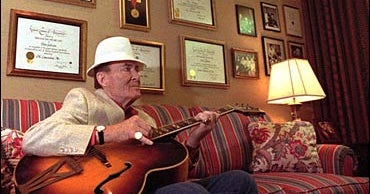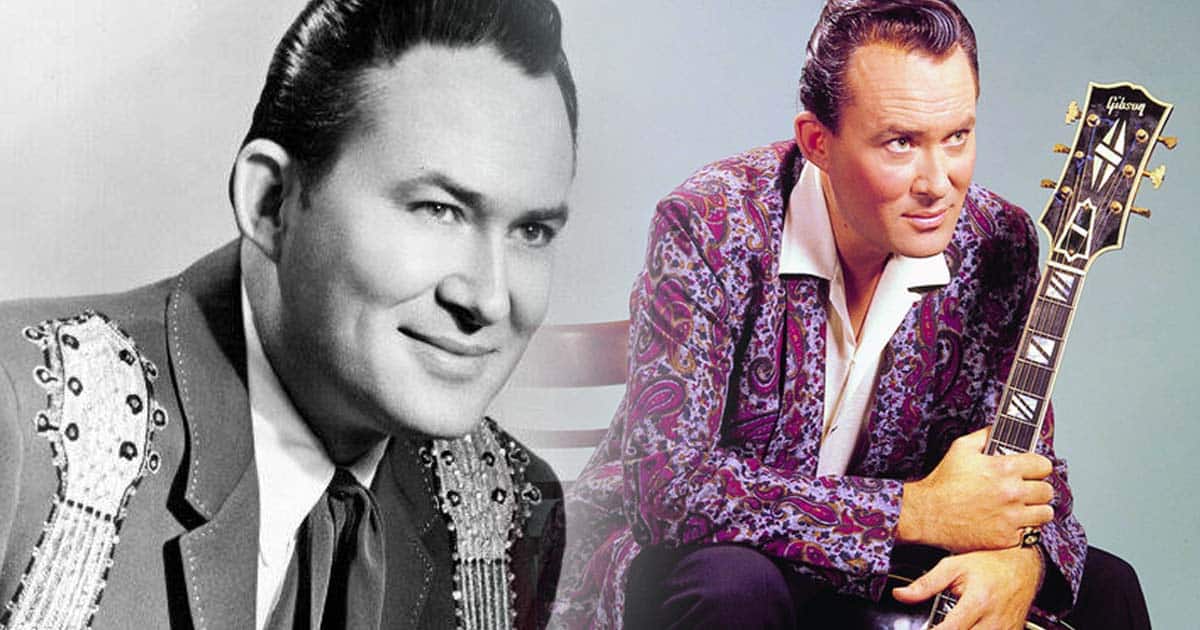Don Gibson’s cause of death: Reason behind his death!
Don Gibson’s cause of death: The songwriter and singer who wrote three of the most famous songs in country music history has died in Nashville. Don Gibson was pronounced dead at Baptist Hospital on Monday evening (Nov. 17). He was 75, and death was due to natural causes.
Although well-known as an artist, Gibson once said, “I consider myself a songwriter who sings rather than a singer who writes songs.” One of those songs was “Sweet Dreams,” a 1956 hit for both Faron Young and Gibson and landed Gibson a songwriting contract with premier Nashville publisher Acuff-Rose and a record deal with MGM. In one afternoon, he wrote his other two landmark songs in a Knoxville, Tenn., trailer park: “I Can’t Stop Loving You” and “Oh Lonesome Me.”
After charting a No. 9 hit with his single “Sweet Dreams,” Gibson left MGM for RCA. Chet Atkins produced his first singles in 1957. The recording of “Oh Lonesome Me” went to No. 1 and is now regarded as one of the prime early examples of what came to be known as the “Nashville Sound.” With its use of piano, drums, guitars, and background singers — instead of the traditional steel guitar and fiddle — “Oh Lonesome Me” set the prototype for the cleaner, sweeter sound that Atkins at RCA and Owen Bradley at Decca were championing.
He was born Donald Eugene Gibson on April 3, 1928, in Shelby, N.C. Influenced by the mellow country sounds of Red Foley and Tennessee Ernie Ford, he began working in local clubs while still in high school. After graduation, he pursued music while working a series of jobs as a soda jerk, baby diaper deliveryman, and dishwasher. He worked his way onto the local radio station, WHOS, with a group called Sons of the Soil, in 1948.
With some early success, he recorded briefly for Columbia. He moved to the regional country music center, Knoxville, and played on the WNOX Midday Merry-Go-Round and Barn Dance series there. Wesley Rose of Acuff-Rose signed him to a writing contract after seeing Gibson perform in a Knoxville club. He came to Atkins’ attention and, after “Oh Lonesome Me,” recorded a string of hits, including “Blue Blue Day,” “Sea of Heartbreak,” and “Lonesome Number One.”

With success came personal setbacks, however. Drug and alcohol problems plagued him, and he later said that he became hooked on speed when a doctor first prescribed it for his weight problem. Unknowingly, he wrote the song that best describes himself and his career in 1960: “(I’d be) A Legend in My Time.” Eventually, he returned to Shelby and met Bobbi Patterson, who became his second wife and was instrumental in turning his life around. They moved to Nashville, where he devoted his life to songwriting while continuing to record.
In all, Gibson charted 82 songs himself, with three going to No. 1 — “Oh Lonesome Me,” “Blue Blue Day,” and “Woman (Sensuous Woman).” Gibson was inducted into the Nashville Songwriters Hall of Fame in 1973 and the Country Music Hall in 2001. His songs were recorded by many artists, the most famous example being Ray Charles’ 1962 cover of “I Can’t Stop Loving You,” which topped the pop charts for five weeks.







